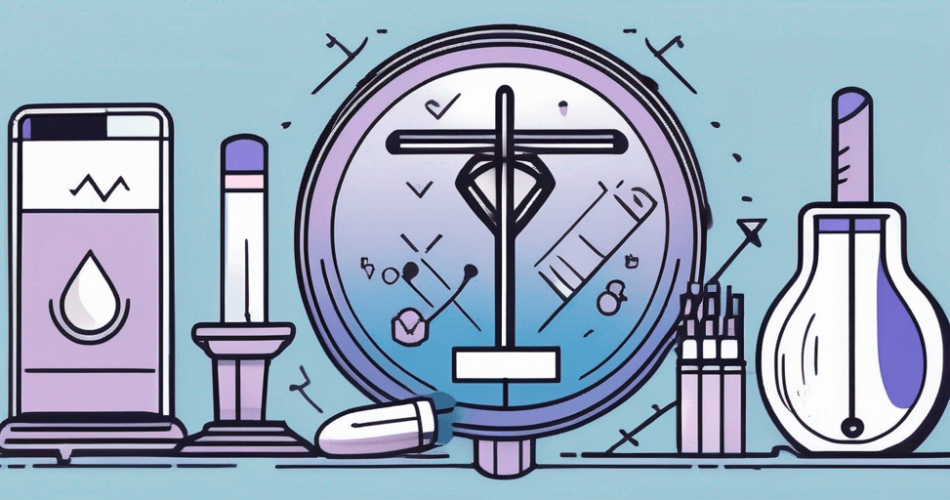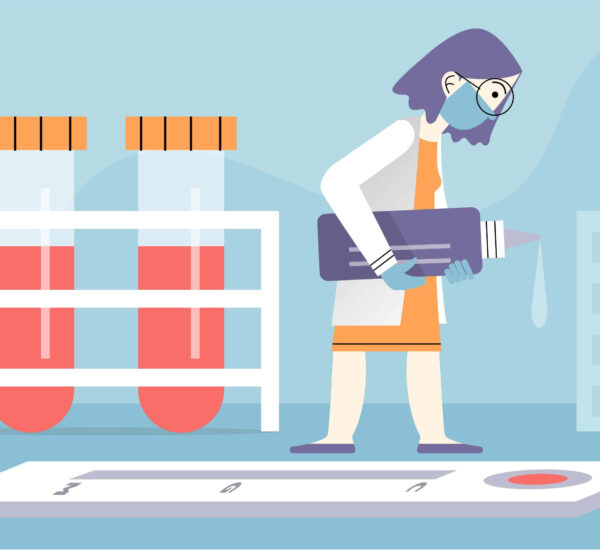When it comes to taking an HIV test at home, it is normal to feel worried about the HIV test results. Some individuals may feel that way because they don’t have a medical background and no knowledge about HIV itself. Fortunately, advancements in technology helped bridge this gap by making self-test kits available to the public. With that, HIV test accuracy is ensured to cater to every individual seeking their current HIV status.
However, despite the HIV test accuracy, there are risk factors that can affect the result. Let’s uncover the facts about HIV tests and debunk the wrong misconceptions about the factors revolving around it.
The Science Behind HIV Home Tests
At the heart of HIV home tests lies the technology for detecting HIV antibodies or antigens. When a person becomes infected due to a possible exposure to HIV, their immune system produces specific proteins called antibodies to fight the virus. Similarly, the presence of HIV antigens, which are viral proteins, can also be indicative of an HIV infection. HIV home tests are designed to detect these antibodies or antigens using a sample of blood or oral fluid.
It is important to note that HIV home tests are screening tests. The reactive result from the test indicates the presence of HIV antibodies or antigens and requires further HIV diagnosis by a healthcare provider.
Accuracy of Test Kits for HIV
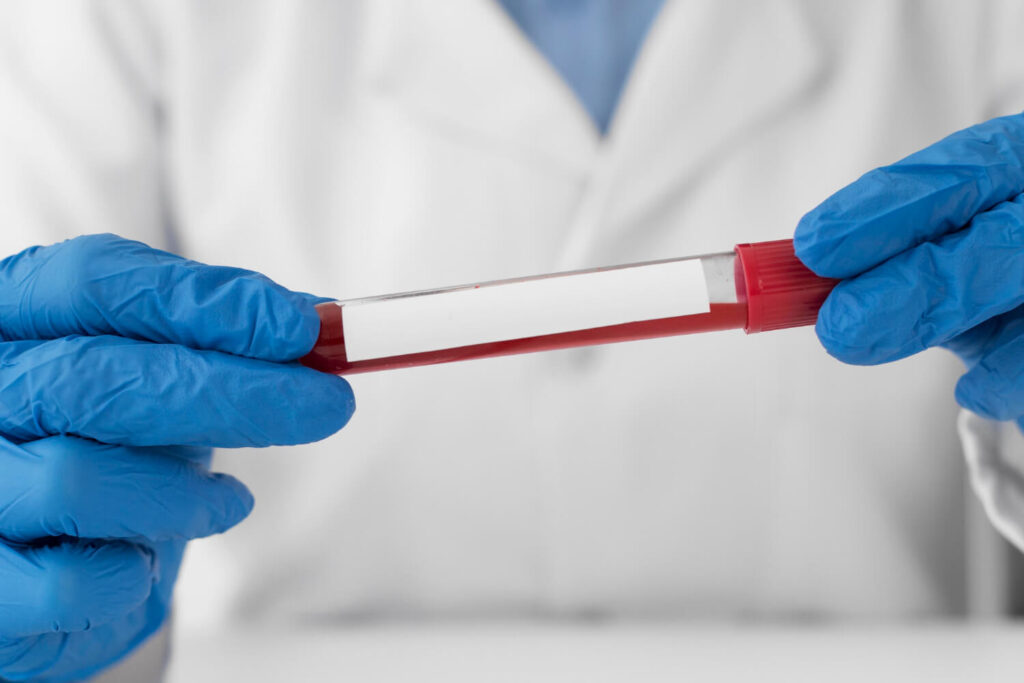
In terms of HIV test accuracy, there’s one type of HIV test that ensures that aspect, which is a laboratory test. A laboratory test uses the blood sample of the patient, which can provide an in-depth view of the possible HIV occurrence. At the same time, it can discover other antibodies, which are not HIV-related. That’s why a lab test is the second test that doctors commonly recommend to patients for better HIV diagnosis. In short, it is a fool-proof test, which other HIV tests cannot process.
Types of HIV Tests
There are different types of tests for HIV that individuals can utilize when there’s a possible HIV exposure. Each of these types of tests can work as HIV screening or first test, allowing people to identify their HIV status immediately. Let’s discuss them through the 2 main categories below!
Home Testing
The first type of HIV test is the home testing kit, which can be used in a private location such as home, office, etc. It is a type of testing kit that individuals can acquire by visiting community health centers. At the same time, individuals can get them online and at accredited pharmacies. Due to the global impact of the human immunodeficiency virus, a call for immediate monitoring is needed, which home test kits can perform.
Here are the following home testing kits available:
- Antibody Test: The HIV antibody test is a rapid test that detects the presence of HIV antibodies in the blood or oral fluid, usually around 3-12 weeks after infection. Following this period ensures that enough antibodies are produced, which can signify HIV infection. It is identified to have 99% HIV test accuracy.
- Combination Test: It is also known as the fourth generation test, which looks for HIV antibodies and antigens. Thus, providing quicker results (usually within 2-6 weeks post-infection). This test also offers 99% HIV test accuracy.
Lab Test
Meanwhile, another type of HIV test includes going to medical clinics for laboratory tests. This test offers an in-depth detection and monitoring of the HIV infection. Furthermore, like home testing kits, lab tests will utilize blood samples.
- Nucleic Acid Test (NAT): This laboratory-based NAT test is a viral load test that detects the actual genetic material of the virus in blood samples. In short, it is a type of blood test that is highly sensitive and can detect HIV infection within days of exposure, making it crucial in early diagnosis and monitoring viral load in individuals living with HIV.
Factors Influencing Test Accuracy
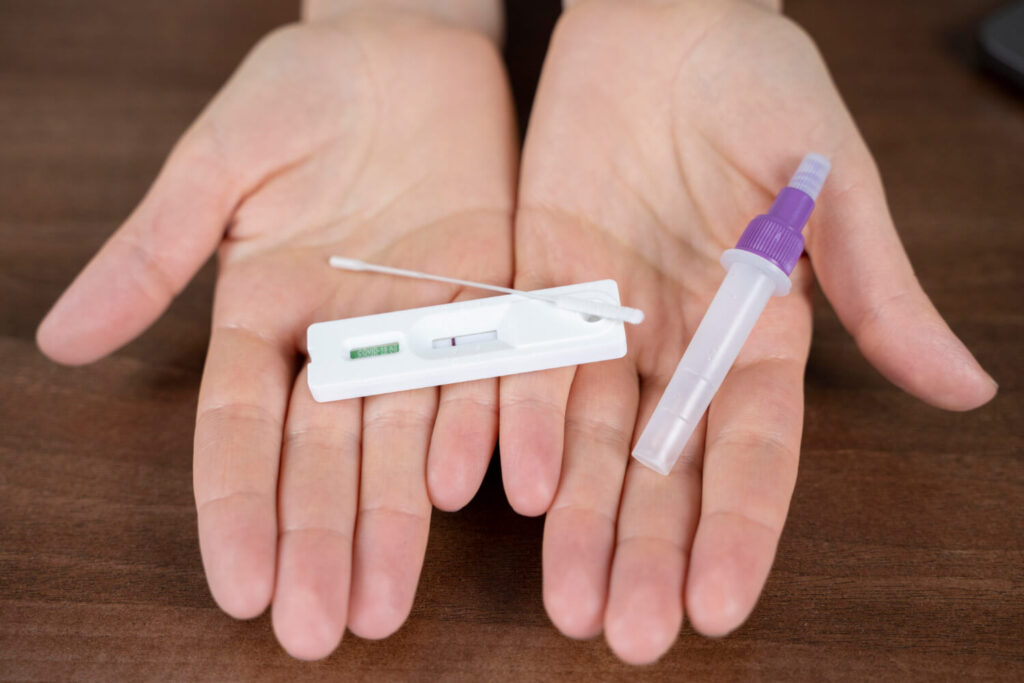
While lab tests are known for being the most accurate, home tests can still provide HIV test accuracy of 99%. That means, the test results are still effective in identifying the health status of the patient and can help as a guide for them to seek immediate help.
However, home test results can still change, because of the influence of various factors. Let’s discuss these risk factors and how they affect the HIV test accuracy of home test kits.
Timing of Testing
The timing of testing can affect the accuracy of HIV home tests. It is recommended to wait at least three months after a potential exposure to HIV before taking the test. This waiting period allows enough time for the body to produce detectable levels of HIV antibodies or antigens, increasing the test’s accuracy. Testing too soon after exposure may result in a false negative result, as the body may not have produced enough detectable markers of infection.
Sample Collection
Moreover, proper sample collection and handling are also vital for accurate results. Following the instructions provided with the test kit is crucial to ensure that the sample is collected correctly. Improper collection or mishandling of the sample can lead to inaccurate results. It is important to carefully read and follow the instructions to maximize the accuracy of the test.
Other Health Conditions
As mentioned, the possibility of other antibodies can result in false positives and false negatives. That’s what happens when certain medical conditions or infections affect the body. The body’s response is to produce antibodies, which the HIV test detects.
These factors are the reasons why home test kits don’t provide 100% HIV test accuracy. However, the health department continues to produce high-accuracy health tools to help the public with HIV awareness. That’s why most healthcare workers in the community offer community programs about HIV. This includes offering home test kits for people to get tested.
Debunking Myths About Home Kits HIV Test Accuracy
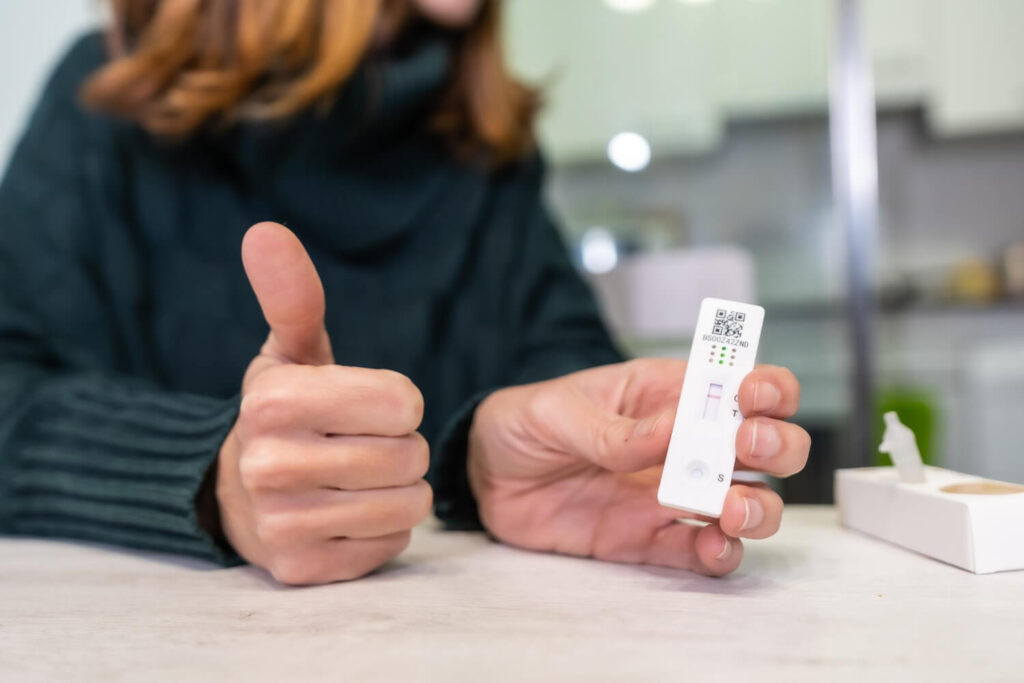
Like any medical innovation, HIV home tests have not been immune to misconceptions and myths. Let’s debunk some common myths surrounding these tests to provide a clearer understanding.
Common Misconceptions
Myth 1: HIV home tests are less reliable than tests performed in a healthcare setting.
Fact: Numerous studies have shown that HIV home tests have comparable accuracy to tests performed in professional settings. However, as with any test, following proper instructions and seeking confirmation through additional tests when necessary is crucial.
Myth 2: HIV home tests can replace professional healthcare and counseling.
Fact: While HIV home tests offer a convenient way to check one’s HIV status, they are not intended to replace professional healthcare and counseling services. If you receive a positive result, it is essential to seek follow-up care from a healthcare provider who can provide guidance and support.
The Truth About HIV Home Tests
HIV home tests are a valuable tool in the fight against HIV, empowering individuals to take control of their sexual health. They offer an opportunity for early detection, which is crucial for initiating prompt treatment and adopting preventive measures to reduce the transmission of HIV.
Moreover, HIV home tests provide privacy and convenience, allowing individuals to test themselves in the comfort of their own homes without the need to visit a healthcare facility. This can be particularly beneficial for those who may feel stigmatized or uncomfortable seeking HIV testing in a public setting.
It’s important to note that HIV home tests are designed to be user-friendly, with clear instructions in the kit. This accessibility makes it easier for individuals to take proactive steps toward knowing their HIV status and seeking appropriate care if needed. By debunking myths and understanding the value of HIV home tests, we can encourage more people to take charge of their health and well-being.
Frequently Asked Questions
How to determine the HIV test accuracy of home test kits?
Determining the accuracy of HIV home test kits involves looking at both sensitivity and specificity. Sensitivity refers to how often the test correctly identifies those with HIV, while specificity indicates how often the test correctly identifies those without HIV. To assess accuracy, check for FDA approval and look for tests with high sensitivity and specificity rates. It’s also advisable to follow up with a healthcare provider for confirmatory testing if you receive a positive result on a home test kit.
How fast do home test kits provide results?
Home test kits are designed to offer immediate results after usage. Commonly it can produce the diagnosis in 15 to 30 minutes. Still, it will depend on the type of testing kit used.
When to consider retesting or confirmatory tests?
Retesting is advised in certain situations, such as if there was a recent potential exposure to HIV, if there are conflicting test results, or if you have concerns about the accuracy of the initial test. It’s essential to follow up with healthcare providers for proper guidance on next steps and to ensure accurate diagnosis and appropriate
Conclusion
HIV test accuracy is an important aspect when considering a home testing kit. While all available self-test kits can perform accurately, seeking a second opinion must still happen. In short, individuals must have confirmatory tests to determine their HIV status. Doing so, helps patients to get informed about the possible HIV treatment needed, in case their condition is confirmed to be HIV.
Are you planning on taking an HIV test today? Ensure accurate results by confirming your status with an infectious disease doctor. Book an online consultation today!
